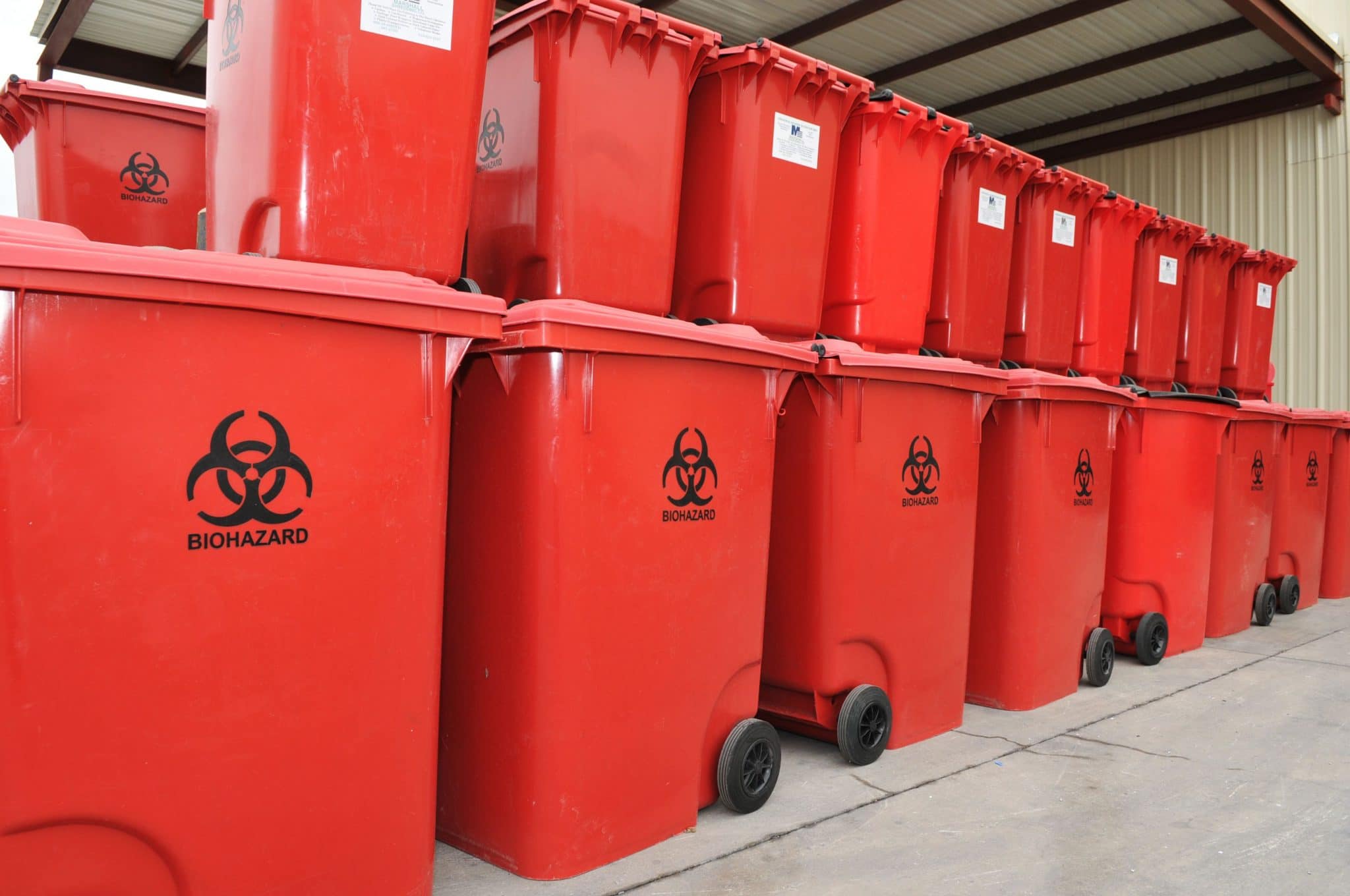Navigating Medical Waste Disposal: Important Services for Healthcare Facilities
In the elaborate landscape of healthcare procedures, the monitoring of medical waste is a vital facet that demands thorough interest. Healthcare facilities, whether big hospitals or little clinics, are turned over with the duty of handling, treating, and disposing of a vast range of medical waste streams. The intricacies included in browsing through the regulative requirements, ensuring appropriate waste segregation, and performing risk-free collection and transportation procedures are paramount. Comprehending the crucial solutions that support medical garbage disposal is not simply a matter of conformity however also a basic component in safeguarding public wellness and environmental well-being. The intricacies of this procedure are crucial for healthcare facilities, and the expertise supplied in this realm plays a pivotal duty in preserving the integrity of health care systems.
Regulatory Compliance Support
For healthcare centers, making sure governing conformity assistance is important to preserve appropriate handling and disposal of clinical waste. By partnering with governing conformity professionals, health care centers can stay up-to-date on developing guidelines, minimize dangers linked with improper waste disposal, and ultimately contribute to a much safer and a lot more lasting setting for all.
Waste Segregation Guidance

Health care facilities have to offer clear guidelines and training to personnel on just how to segregate waste effectively. This consists of dividing basic waste from dangerous materials such as sharps, transmittable waste, drugs, and chemical waste. Color-coded containers, tags, and signage are commonly utilized to assist in waste segregation practices. Normal audits and tracking of waste partition procedures are necessary to determine any type of concerns and make necessary improvements.
Collection and Transport Solutions

Appropriate collection and transport solutions are important parts of the medical waste disposal process in healthcare centers. These solutions ensure that hazardous products are managed securely and in conformity with laws to safeguard both the setting and public health and wellness. Medical care facilities depend on specialized waste management companies to give effective collection and transportation services customized to their needs.
Medical waste collection involves segregating various kinds of waste at the factor of generation, using color-coded bins or bags to distinguish between basic, harmful, pharmaceutical, and other waste streams. As soon as gathered, the waste is moved in specialized cars equipped to manage harmful products safely.
Therapy and Disposal Solutions
In the world of clinical waste disposal for health care facilities, after the vital phase of collection and transport services, the emphasis shifts in the direction of executing effective therapy and disposal services. Treatment remedies often entail procedures such as autoclaving, which uses steam under pressure to decontaminate the waste. This method is commonly made use of for contagious waste that must be made non-hazardous before disposal. Another prevalent treatment approach is incineration, where waste undergoes high temperature levels in controlled settings to decrease its volume and eliminate pathogens.
Disposal options incorporate the final step in the clinical waste management procedure. Reusing and source healing are also acquiring traction as lasting disposal alternatives for certain kinds of my link medical waste products.
Reliable treatment and disposal solutions are critical in ensuring conformity with regulations and guarding public health and wellness and the atmosphere. Healthcare centers need to thoroughly review and select appropriate approaches that align with their waste management objectives and sustainability initiatives.
Team Training and Education And Learning

To successfully handle clinical waste disposal in medical care facilities, detailed team training and education play an essential function in ensuring adherence to regulative requirements and keeping a risk-free setting. Correct training equips team with the understanding and skills required to take care of various types of medical waste, segregate them appropriately, and package them firmly for disposal. By enlightening employees on the risks related to incorrect handling these details of medical waste, facilities can minimize the likelihood of mishaps, contamination, and regulatory violations.

Verdict
To conclude, medical care facilities depend on important clinical waste disposal solutions to make certain regulatory compliance, correct waste partition, risk-free collection and transport, efficient treatment and disposal, as well as staff training and education. These services play a vital duty in preserving the health and wellness and safety and security of both health care employees and the general public, highlighting the significance of correct monitoring of clinical waste in health care settings.
For health care centers, guaranteeing governing conformity assistance is essential to preserve correct handling and disposal of clinical waste. Waste partition entails classifying various kinds of medical waste to ensure appropriate handling, therapy, and disposal. This includes separating basic waste from dangerous products such as sharps, transmittable waste, pharmaceuticals, and chemical waste.Medical waste collection entails segregating various types of waste at the factor of generation, utilizing color-coded containers or bags to distinguish between basic, dangerous, pharmaceutical, and other waste streams.In the realm of check out this site medical waste disposal for healthcare centers, after the essential stage of collection and transport solutions, the focus changes towards carrying out effective therapy and disposal options.